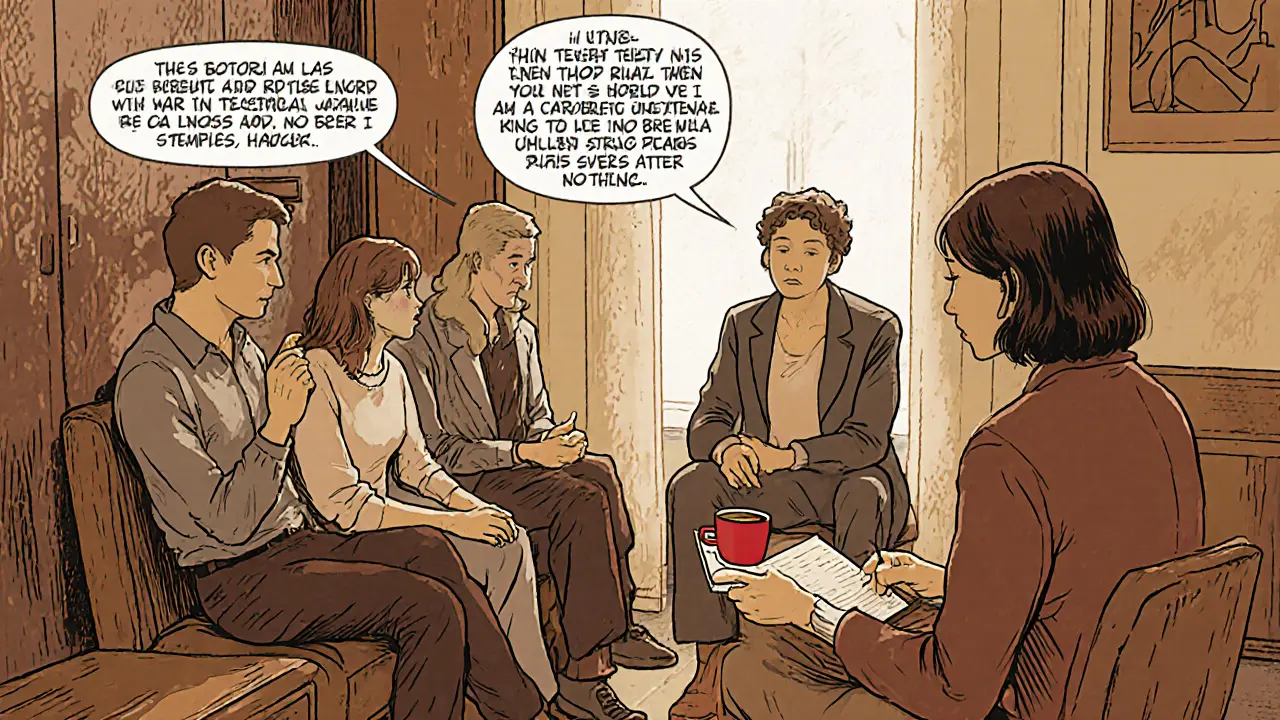Terapie v cizím jazyce: Kdy pomůže a pro koho je skutečně užitečná
When you speak in a language that isn’t your mother tongue, something shifts inside you. Terapie v cizím jazyce, psychoterapeutický proces probíhající v jazyce, který není klientovým mateřským. Also known as terapie v angličtině nebo jiném cizím jazyce, it can unlock emotions you’ve buried under layers of translation, cultural silence, or family taboos. It’s not about being fluent—it’s about being heard in a way your native tongue no longer allows.
Many people who grew up bilingual, moved abroad, or were raised in families where emotions were never named in their first language find that speaking in English, German, or even French helps them say things they couldn’t say at home. The jazyková bariéra, psychologická vzdálenost, kterou vytváří používání cizího jazyka isn’t a wall—it’s a buffer. It lets you talk about trauma, shame, or grief without feeling like you’re betraying your family, your culture, or your childhood self. For some, saying "I’m not okay" in English feels safer than whispering it in Czech.
This isn’t about avoiding your roots—it’s about finding a new way to carry them. Studies from Prague’s clinical psychology centers show that clients who choose therapy in a foreign language often access deeper emotional layers faster. Why? Because the emocionální výraz, způsob, jakým člověk projevuje a zpracovává pocity in their native tongue is often tied to old scripts: "Don’t cry," "Be strong," "We don’t talk about that." In another language, those scripts lose power. You’re not just speaking differently—you’re feeling differently.
And it’s not just for expats. Czech speakers who work internationally, study abroad, or have partners from other countries often find their inner world is already bilingual. Their anger, their sadness, their joy—they live in more than one language. Therapy in a foreign tongue lets them integrate those parts instead of keeping them separated.
Some worry it’s less authentic. But authenticity isn’t about the words you use—it’s about whether you’re finally able to say what’s true. A good therapist doesn’t need to be a native speaker of your language to understand your pain. They need to be a good listener, and they need to know how silence, pauses, and tone carry meaning—even when the vocabulary is limited.
If you’ve ever felt like your emotions are stuck behind a glass wall in your own language, terapie v cizím jazyce might be the key to breaking through. You’ll find posts here that explore how bilingual clients use therapy to rebuild trust, process migration trauma, or finally grieve a loss they couldn’t name at home. You’ll also learn how to choose the right therapist, what to expect in your first session, and why some people feel more free speaking in English than in Czech—even when they’ve lived here all their lives.
Jak najít psychoterapeuta, který pracuje v angličtině nebo jiném jazyce? Zjisti, kdy je terapie v cizím jazyce efektivní, jaké jsou ceny v Praze a Bratislavě a jak se vyhnout běžným chybám při výběru.
Pokračovat ve čtení...
